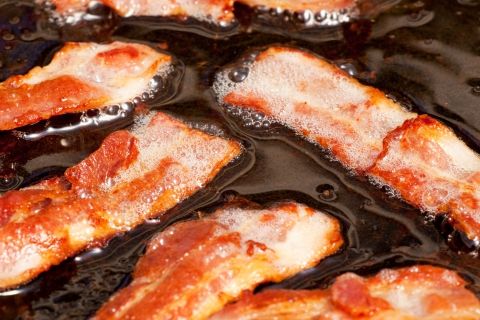How often have you dumped grease down the drain? Hopefully not regularly, especially if you have a septic system. Septic systems do not tolerate grease for a variety of reasons and today we are going to talk about what can happen to your septic system if it is gummed up with things like grease.
At Septic One Septic Tank Service, we have been pumping the septic tanks of Fort Worth for more than 20 years. No matter how bad your septic system may be, or how long it has been since it was cleaned, we have probably seen something just as bad. A word of warning though, waiting too long to have your septic system cleaned can mean damage to the tank and the drain field.
While skipping the regular cleaning is the easiest way to destroy your septic system, nothing will create the problems that grease can. The biggest problem is, most of us do not even think about it.
Grease and oil is not just the sludge left over after you fry up a bunch of bacon, but residue from all sorts of sources. No matter where it comes from, grease can clog pipes, disrupt the biological process in the septic tank, and gum up the drain field.
Clogged Pipes
Grease is notorious for clogging pipes. There are stories of giant grease balls blocking whole sections of sewer pipes. If grease can do that to an open network like a municipal sewer, just think of what sort of havoc it can wreak on your little closed septic system.
Grease and oil can collect in low points in the pipes and over a relatively short period of time, create a solid plug of grease and detritus that cannot be penetrated through earthly means. Meaning if the clog is bad enough, we have to dig up the pipes to clear the obstruction. Not fun.
The Biological Process
Think about the digestive process you learned about in school. The bacteria in your septic tank are like little people at a food truck rally, gobbling up everything they can. These bacteria are good in that they eat the solid waste and deposit broken down “sludge” that does not make its way outside of the septic tank. It is this sludge that we clean out of the bottom of the tank.
If too much grease and oil is introduced into the system, the solid waste can be coated in the oil, creating a barrier that the friendly bacteria can not penetrate. The solid waste will not be broken down correctly and can plug up the drain field.
The Drain Field
As you may remember, oil floats on top of water and when introduced into the septic tank, grease and oil can make its way to the drain field. When the drain field is clogged the wastewater has nowhere to go and that can cause your tank to overflow.
If grease and oil makes its way to the drain field, the pipes could be clogged and there is no way to repair that kind of barrier without replacement.
Grease is Bad (Except On French Fries)
The bottom line is that grease is bad for your septic system unfortunately it is unavoidable that grease makes its way into your tank. By itself, the little grease that will make its way into the septic tank is not necessarily a big deal if you follow a regular cleaning schedule.
At Septic One, we are standing by to pump your septic tank, inspect your system for issues, and can perform any repairs that may be needed. If you can't remember the last time you had your septic tank cleaned, it is time to call Septic One for a cleaning and check up. As a word of caution, go easy on the grease and you should be just fine to follow a 2–4 year schedule for cleaning. If you have any questions please do not hesitate to give us a call.
Septic Tank Pumping Fort Worth
septic service, septic tank service, septic repairs, septic tank repairs, septic tank emptying
Septic Tank Cleaning Fort Worth
septic tank care, septic cleaning, septic tank maintenance, aerobic septic, septic system maintenance

